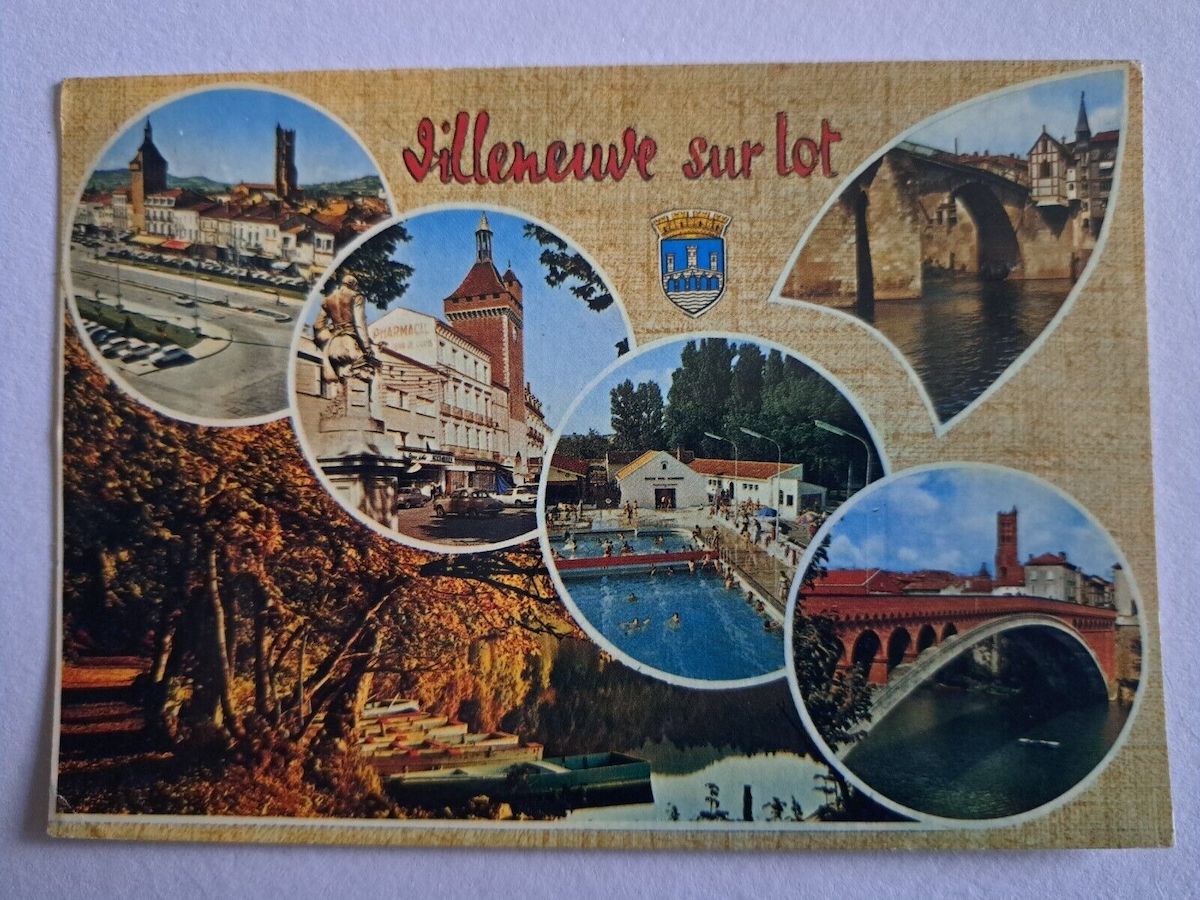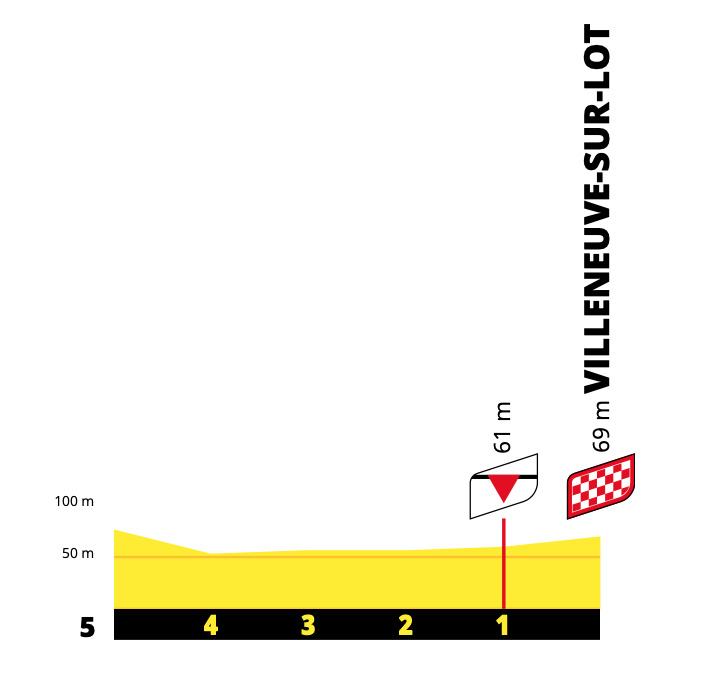A day to calm frayed nerves after yesterday’s mania but tension between the breakaway and the sprinters.

Massif day: a raucous start to the stage with moves flying and almost 50km covered in the first hour, beaucoup on hilly roads. It took longer still for the breakaway to form with Richard Carapaz among the most persistent until finally after 90km the move went clear, but sans Romain Bardet who had a mechanical just as he got across. He didn’t have long be wistful about missing the break though. UAE kept the gap tight and other teams joined in on the approach to the start of the big climbs. The breakaway was crushed, the script ripped up and this was going to be a GC stage.

A Tadej Pogačar attack was on the cards and at the rate he was using up team mates (UAE have no Plan B, no decoy), you could tell it was coming on the Pas de Peyrol with over 30km to go. He launched and nobody could, or would, follow. Yet if he got 30 seconds here Jonas Vingegaard took this back on the next climb, the Perthus.
The pair would ride together to the finish and this must have been playing on Pogačar’s mind. Worse for him, Pogačar lost the sprint, rare. He seemed to have a low gear, and to borrow from Stendhal, as if “his legs felt to him like cotton, he had no more strength”.

There’s a lot of tea leaf reading, how much to extrapolate? The word is Visma were hoping to make the difference in the third week so coming out on top is a triumph. But the GC changed by one second in the Dane’s advantage: a morale boost rather than a reversal. Ask the bookmakers and things have switched, Vingegaard is now the market pick.
If Pogačar can’t convert the steep climbs to his advantages he might be worried, it’s his speciality. But with the Giro in his legs he’s surely bound to have less zip, was this really the place to try? It’s all deliciously uncertain.
Behind Primož Roglič crashed on the last bend downhill but the three kilometre rule applies to all stages except summit finishes, as it has for ages so he was credited as finishing with Evenepoel. Plenty seemed surprised by this, but the same rule existed in 2016 on the same roads, only nobody stacked it like Roglič that day. Still he and Remco Evenepoel lost 25 seconds, more time conceded. Evenepoel’s losses means he joins Vingegaard in being over a minute down, the Belgian’s gains in the grand cru time trial now conceded in double. Never say never for Roglič but so far he’s not been taking time on the terrain he normally does.
Earlier Romain Bardet rode through the “Virage Bardet”, something to record because if he is retiring perhaps his popularity is growing, or just it was worth paying tribute.
One last note and we go back to the start. Pello Bilbao lost 40 minutes and Fred Wright was outside of the time limit. Your blogger was in the village départ and instead of slamming pâté on toast noticed some Bahrain riders arrived in a separate vehicle, wearing wearing masks, and stayed away from the bus as if quarantined. Cofidis lost two riders. Fingers crossed.
The Route: 203km and 2,100m of vertical gain. The start town of Aurillac is half-famous in France for being the coldest place in the country. TV weather forecasts seem to show Aurillac with the lowest temperature. Yet often does not equal reality, it’s nowhere near the coldest place, whether the average or the record. Instead things can heat up with the big road at the start, a wide route nationale artery.
The goes through Rocamadour and then climbs away from the hilltop village for the marked climb. From here on it’s sunflower country. The intermediate sprint is in Gourdon where Eurosport pundit Jacky Durand won a stage almost a third of a century ago.
The Finish: around town and across the Lot and back out for a big wide finish, easy on the logistics but less so for the charm.
The Contenders: breakaway or sprint? 2,100m of V+ suggests a breakaway as it’s a hard day with some hilly roads but several teams have house sprinters who can still win or even thrive after this distance. But for many other riders and plenty of teams today could be worth trying the early break, it’s not a long shot.
The finish is flat so Jasper Philipsen (Alpecin-Deceuninck) is the first pick, we’ll see his team can control the day. Biniam Girmay (Intermarché-Wanty) would like an uphill finish but could be fresher by the end.
If there’s a breakaway it helps to be able to sprint well or barge clear late so Jasper Stuyven (Lidl-Trek), Dorion Godon (Decathlon-Ag2r La Mondiale), Alex Aranburu (Movistar), Marijn van dern Berg (EF), Michael Matthews (Jayco) are all contenders, so is Anthony Turgis (Total) and Luca Mozzato (Arkéa-B&B Hotels)
| – | |
| Philipsen, Girmay | |
| Groenewegen, Cavendish, Stuyven, Matthews, Aranburu, Gaviria, MvdB, MvdP, Turgis |
Weather: sunshine and rain, 26°C and the chance of a thunderstorm or three.
TV: KM0 is at 12.50pm CEST and the finish is forecast for 5.30pm CEST. Tune in early to see the contest for the breakaway and if it’s sport or siesta.

Postcard from Villeneuve-sur-Lot
Jean-Théodore Joyeux or Carl Naïbo as the local cycling celebrity? Joyeux wins the coin toss. A hairdresser by trade from nearby Castillonnès, he was a keen cyclist at the end of the 19th century. After results in what we could call the amateur ranks he hit on a commercial collaboration with Métropole to undertake “un tour de France” to prove their bike was up to it. Métropole’s bike was the Acatène, a play on “without a chain” because it used a shaft drive to connect the cranks to the back wheel.

Starting in Paris in May 1895 he rode clockwise around France, reportedly doing 19 stages and averaging 289km to complete a 5,500km lap of France for which he went into the French cycling record books. He finished “in perfect health, not at all tired and ready to go again in the coming days“. This can make Joyeux the original pioneer of the Tour de France, before of Henri Desgrange and his colleagues at L’Auto newspaper who launched their Tour de France in 1903 and ahead of the inaugural winner Maurice Garin.
Some reports say Joyeux’s ride didn’t get the recognition it deserved because it was overshadowed by the Dreyfus affair. This was a huge political scandal that divided France, the splits it provoked were even a factor to the founding of the Tour de France. Such claims persist online but are hard to stand up, the Dreyfus news wasn’t boiling in May 1895, there ought to have been room for a cycling endeavour in the newspapers too. Rather it seems Joyeux was on a solo jaunt and promoting a brand, so no race to write up and didn’t have a house newspaper to publicise him either. He does feature in the press who praised the notion of doing 250km a day but it feels like they can’t write up 19 versions of this for each stage.
Continuing with the debunking other articles say Desgrange wrote in his L’Auto column that “the idea of organising the great cycling race as we know it comes from the record of Théodore Joyeux” but who can find a mention in the archives; instead he seems to have said this in passing during a visit to nearby Agen in 1920.

Still, to paraphrase Desgranges, it seems the Tour de France was a Joyeux idea. Or maybe not? As a Breton called Jean-Marie Le Corre also had the same idea in 1895 and presented it to the media to drum up interest. Joyeux might have read this and got going before Le Corre so if not the idea, the first tour of France on a bike in stages was down to Joyeux.
Perhaps the lesson is you don’t always have to be first with an invention, coming along later with improvements, a bolder story and better backing counts for plenty too.
